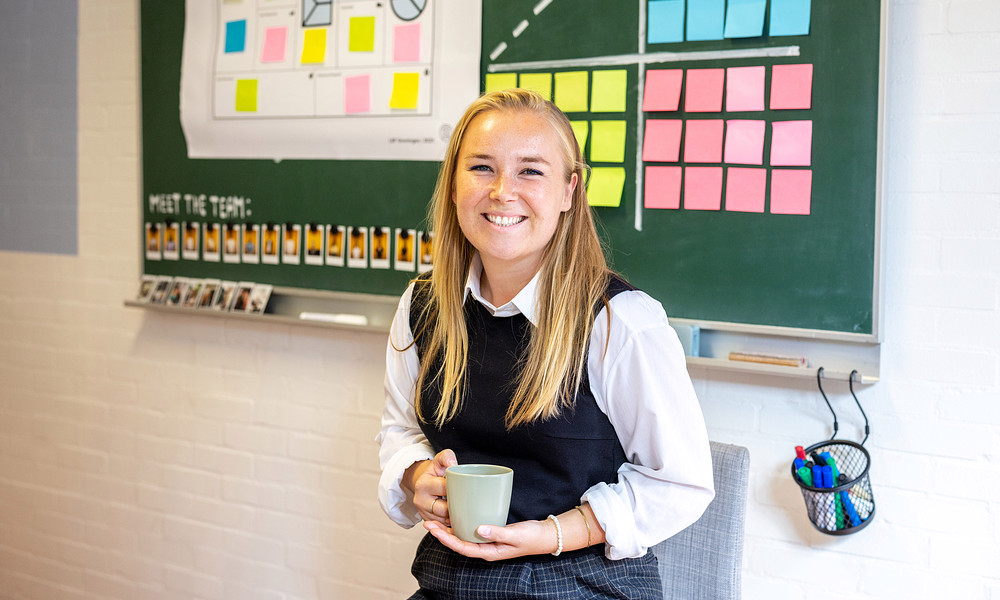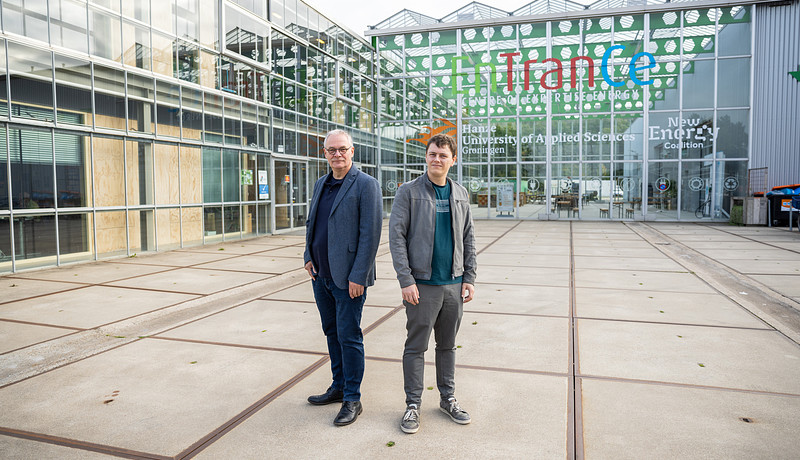
Joline Teisman wants to contribute to the energy transition as a professional. That's why she took the Energy for Society master's. She is now the Energy Transition project leader at LEF Groningen.
Energy transition is a huge task with many facets, and that's what makes it interesting to me. During my bachelor Human Technology Engineering (now Industrial Product Design) I already took sustainability into account in my projects. After that study I wanted to delve deeper into the subject. The Energy for Society master's primarily focuses on the social aspect of energy transition: how do we get everyone on board? That really appealed to me.
The master's is very broad. You learn about technology, business, legislation and regulations, but also about communication and even philosophy. You approach the energy transition from all sides. In the first year I was sometimes overwhelmed by all the information, but by the end of that year it was as if the pieces of the puzzle fell into place. Suddenly I saw the connections. I found it very interesting that you are involved at so many different levels. From European agreements to individual citizens: they all come into play.
I now work as an Energy Transition project leader at LEF Groningen. Among other things, I assist organizations in developing sustainability policies. An important part of this is involving employees and creating support. I benefit greatly from the knowledge I gained in my master's.'
I would absolutely recommend the Energy for Society master's. The atmosphere on the course was very positive and open. We were with a small group and formed a close community. Moreover, the social side of energy transition is still underexposed. The more people involved, the better. And thanks to the broad approach, this master's provides a solid basis for a job in the energy transition.
Energy transition is a huge task with many facets, and that's what makes it interesting to me. During my bachelor Human Technology Engineering (now Industrial Product Design) I already took sustainability into account in my projects. After that study I wanted to delve deeper into the subject. The Energy for Society master's primarily focuses on the social aspect of energy transition: how do we get everyone on board? That really appealed to me.
The master's is very broad. You learn about technology, business, legislation and regulations, but also about communication and even philosophy. You approach the energy transition from all sides. In the first year I was sometimes overwhelmed by all the information, but by the end of that year it was as if the pieces of the puzzle fell into place. Suddenly I saw the connections. I found it very interesting that you are involved at so many different levels. From European agreements to individual citizens: they all come into play.
I now work as an Energy Transition project leader at LEF Groningen. Among other things, I assist organizations in developing sustainability policies. An important part of this is involving employees and creating support. I benefit greatly from the knowledge I gained in my master's.'
I would absolutely recommend the Energy for Society master's. The atmosphere on the course was very positive and open. We were with a small group and formed a close community. Moreover, the social side of energy transition is still underexposed. The more people involved, the better. And thanks to the broad approach, this master's provides a solid basis for a job in the energy transition.
Feedback component
How satisfied are you with the information on this page?


